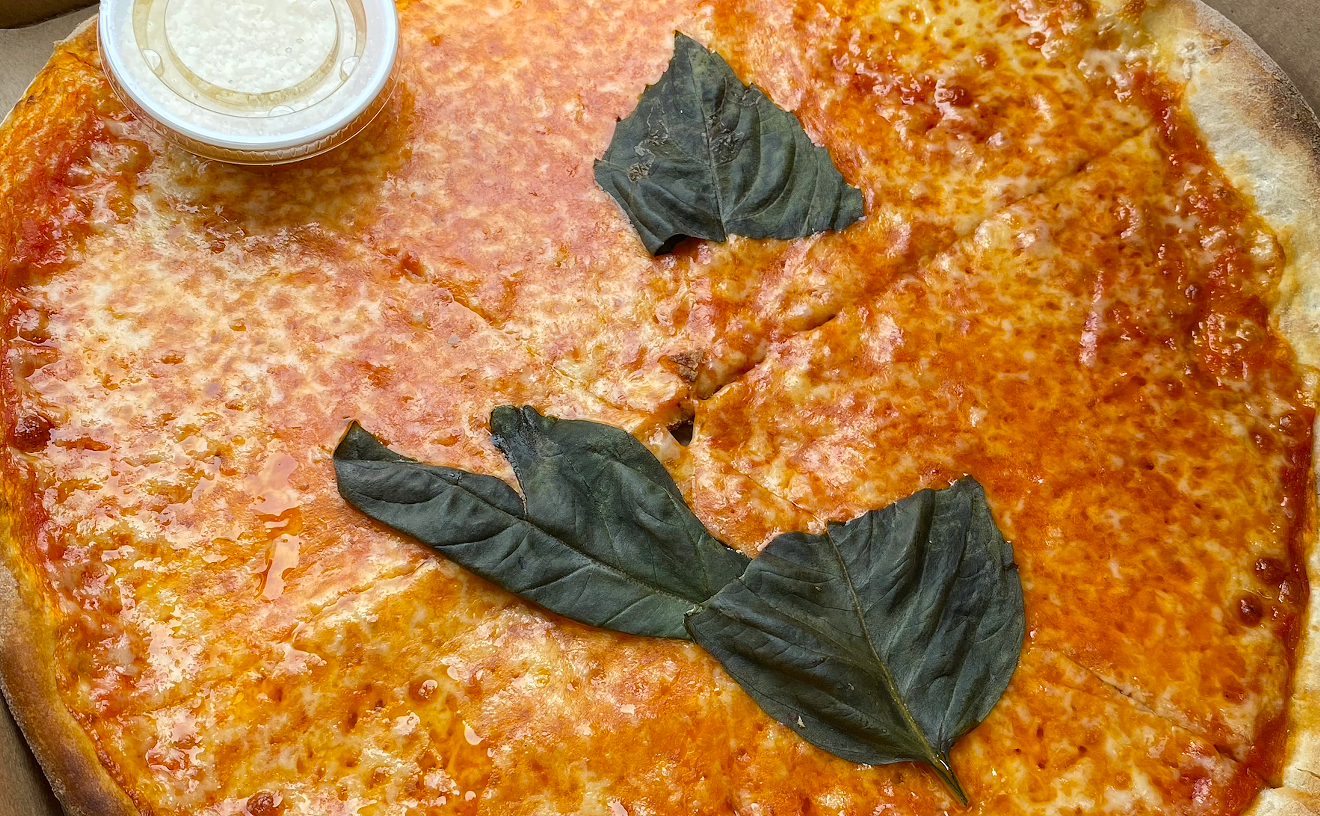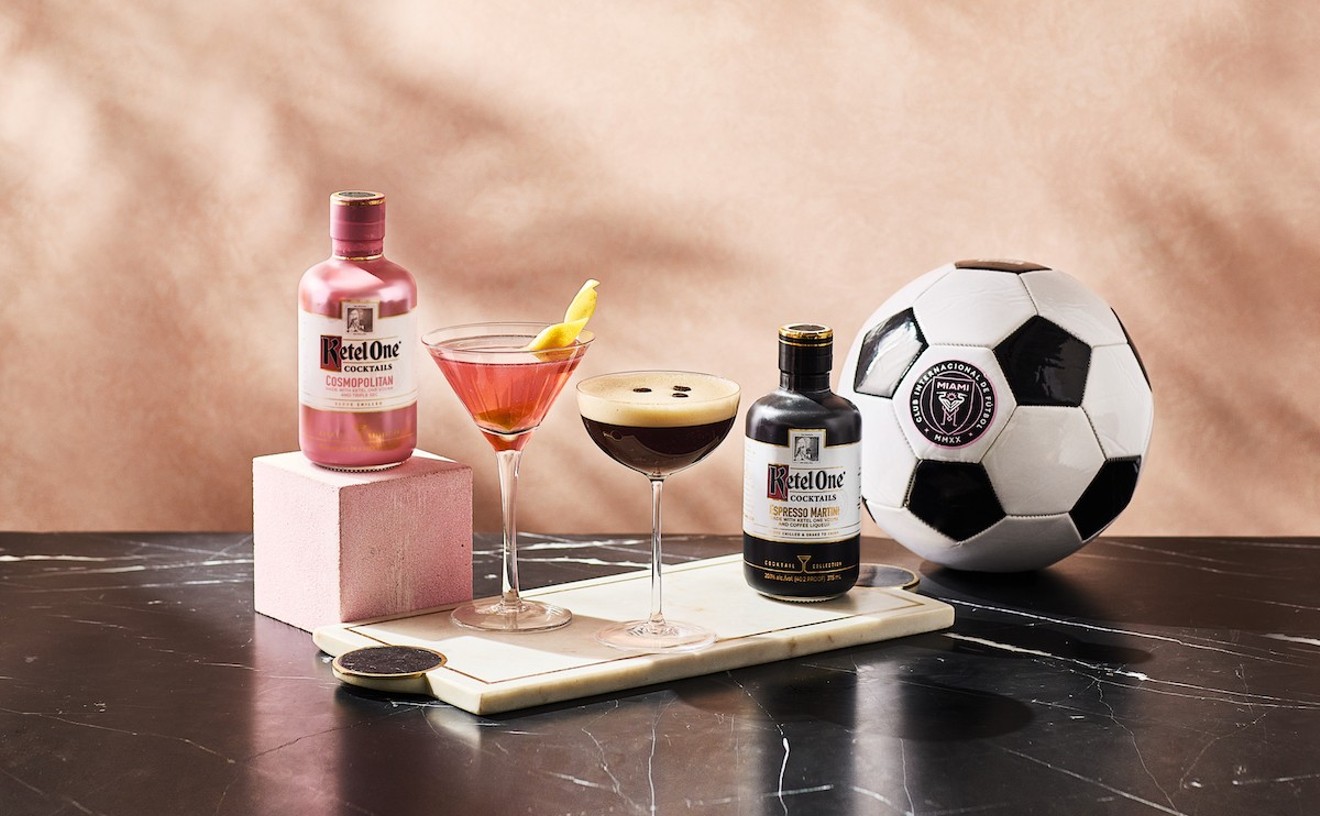Northwood Village , situated at the northeastern tip of West Palm Beach, has undergone a bizarre transformation in the past dozen years. When I first moved to Palm Beach County in the '90s, I met lots of youngish, middle-class people who were buying modest houses there. They'd formed a close-knit neighborhood association, fought with the city to place strategic dead-end barricades sealing them off from pawn shops and crack houses on Broadway, built cheery, landscaped roundabouts at intersections, and laid the road toward gentrification one brick paver at a time.
Northwood was and still is a small island of white privilege in rough seas: It's adjacent to Pleasant City on one side and Riviera Beach on the other, two of the oldest and poorest black communities in Palm Beach County, and the neighborhoods share a main street. Northwood Road a decade ago was a thriving community of African-American-owned businesses, hairdressers and barber shops, thrift and drugstores, neighborhood markets, restaurants with takeout windows, and the African American Heritage bookstore, which is still in business, stocked with hard-to-find black history and literature.
The three neighborhoods have had to work to find common ground and to stitch up their differences. Historic houses have sold for more than $2 million in Northwood, and seven blocks away, single-family homes in Pleasant City are priced in the mid-40s. Brick pavers or no, the road to gentrification has been a pretty rocky one. A couple of years ago, I drove to Northwood to check out a new pub called Hoboken Grill and found a valet station parking Lexuses and Lamborghinis at the entrance. The place was packed with rich Palm Beach islanders, who have long kept at least one favorite Northwood watering hole as an escape hatch — for two decades, they'd trekked across the bridge to This Is It Pub on 25th Street. But the streets around Hoboken Grill were still empty and rundown; the businesses on the main drag had shielded their windows with iron grates. Today, though, all that has changed.
In part, the change is thanks to Café Centro. On a recent Friday night, the line to get in to this neighborhood Italian bistro stretched down the block, fraying at the ends so waiting customers mingled with the artsy crowd preening outside the gallery next door. The monthly Northwood Nights sidewalk arts fair was in full swing; couples strolled along the sidewalks and lingered outside cafés like Jade Kitchen and the long-running and newly refurbished soul-food joint World Famous Restaurant. Some of the original African-American-owned businesses were still open among new antiques galleries and garden stores, owners and customers unfolding metal chairs to sit by the sidewalk. There were surreal elements: A guy rolling by on a ten-foot-high bicycle, a trio of girls in haute dresses clacketing down the street on stilt heels and looking like they'd just got loose from a fashion shoot — in short, the scene was a big sophisticated street party, closer to a happening neighborhood in Atlanta or Boston than anything in South Florida. Café Centro was opened last year by Yuksel "Sal" Kutsal and Turgut "T.K." Kaytmas, who years ago ran Pescatore on Narcissus Avenue and Clematis Street in West Palm (they still have a Pescatore in Manhattan). They've since commandeered almost a block on the southwest corner of Northwood Road and Dixie Highway and added a casual pizzeria/burger joint named Allora that segues into the chic Centro piano bar.
What they've done with all three spaces is so hip, urban, and inviting that it makes you realize how other restaurants have sadly failed at design: gorgeous exposed beam ceilings, endless glass doors thrown open on sidewalk tables, walls painted in luscious hues of raspberry, exposed brick, and oversized antique mirrors. Potted trees are set at intervals along the sidewalk; an outdoor table under a pergola sports a funky chandelier. The whole complex feels incredibly swank in the most comfortable way; it's impossible to walk by without wanting to go in or snag a patio table. We popped our heads into the bar, and there was the Palm Beach island set, recognizable in salmon-pink trousers and helmet hair, with a valet outside still struggling to find a spot to park a Bentley.
If you do happen to pass by and feel inexorably drawn in, good luck: Even on a Monday night last week, Café Centro was fully booked for dinner between 7 and 9. This must be one of the most popular and successful restaurants in West Palm Beach, a place fully shored up against economic ills. When you look at the menu, you get why: Centro has priced its entrées so you could reasonably eat here once or twice a week without hurting; it's got a solid wine list, but you can bring your own bottle for a $15 corkage fee (mixed drinks are available via the Centro piano bar). They'll serve pizza from next door as an appetizer ($10.50 to $13.50), or steamed clams, raw oysters, crab cakes, and salmon carpaccio priced in the same range. Homemade linguine and rigatone is $12; a plate of grilled free-range chicken is $14.50.
This is exactly what a neighborhood restaurant is supposed to do: serve good food in a romantic atmosphere at reasonable prices, and Centro has nailed it. We sat on the banquette along one wall, where you're practically elbow to elbow with your fellow diners — but the proximity just makes it that much more neighborly: It's easy to strike up a conversation. The neighbors to our west were having Belgian endive salads, and they looked delicious: walnuts, watercress, radicchio, and Gorgonzola with balsamic vinaigrette, prettily arranged; to our immediate east, a couple of gay tourists were digging in to a mozzarella Caprese. Meanwhile, we were dealing with our sausage and onion pizza ($13.50), a thin-crust pie that would have fed four as an appetizer: creamy mozzarella napped against a nice, sharp tomato sauce, quality sausage sliced very thin so it had crisped in the oven and curled at the edges, and sweet carmelized Vidalia onions. The crust, though not brittle, bubbly, or blackened like you'd get from a super-hot oven, had a bit of sugar in it that was really pleasant with the savory toppings. Two people could make a very happy meal out of this pizza and a bottle of red wine.
Crab cakes ($11.50) were a seriously rich starter, plush and fatty crab inside a brittle, caramel-colored crust, drizzled with a reduced cream and butter sauce and sprinkled with dill. For our main dishes, we ordered the linguine nere ($16), house-made fresh black squid-ink pasta topped with tender rings of calamari, sautéed shrimp, and wilted arugula in a spicy tomato sauce. It was luscious — the pasta rich and delicate against the al dente seafood and the bright, piquant greens and tomato. We were slightly less impressed with veal limón ($18.50). The parsley lemon sauce was accomplished, but the meat, pounded extra thin and left unbreaded, was flavorless and a bit dry.
All the sweets except ice creams and sorbet are homemade. Our waitress told us rum cake ($5) was her favorite, so we took the bait and ended up with an unforgettable dessert. Four layers of yellow sponge cake soaked in rum syrup were separated with alternating chocolate and a vanilla Italian pastry cream, the whole thing topped with stabilized whipped cream. The final effect of all this effort was light and smooth, cool, simultaneously rich and refreshing, with a sophisticated but never overpowering background note of rum. Writing about it now, I'm jonesing for another taste — clearly I need to go back for further "research."
Restaurants are like children, right? They've gotta have smart, loving parenting, and Centro's definitely got that department covered. But it takes a village to raise one. With the whole of Northwood Village passionately behind this venture, failure just isn't an option for this baby.










